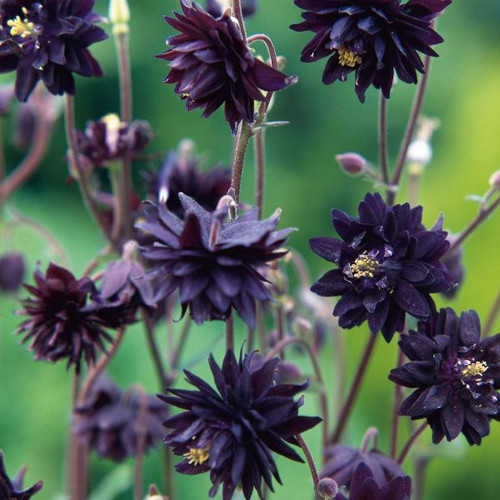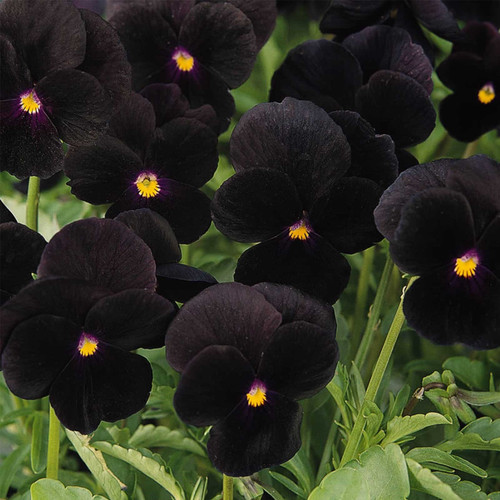Centaurea commonly known as Hardheads, Knapweed, Basket flower, Bachelor’s buttons, Bluebottle, Cornflower, Giant knapweed, Mountain bluet, are annuals, biennials, perennials and subshrubs found in dry sites, including woodland, rocky mountain slopes, subalpine meadows and sand dunes. They occur mainly in Europe and the Mediterranean with a few in Asia, Australia and North America. Centaurea are copious nectar producers especially on high lime soils. The high nectar yield makes it very attractive to insects such as butterflies including the endangered Karner blue which visits introduced spotted knapweed and day flying moths. Larvae of several true weevils also feed on the plants. This very high nectar production, coupled with its early blooming period, makes the plant helpful for the establishment of bee colonies in spring, a period that is often not well-served by commercial flower meadow seed mixes. Some perennials are grown as summer bedding annuals. Low maintenance.
USES: Borders, Rock Gardens, Wildflower gardens, Perennial gardens, Cut flowers, Bee and Butterfly gardens
TOLERATES: Drought, Poor soils, No fertilization, Deer
Botanical Name: Centaurea cyanus ‘Black Boy’
Common Name: Bachelor’s buttons, Bluebottle, Cornflower, Kornblume
Type: Erect Annual
Flower Color: Deep maroon, almost black with fully double flowers. Bright green leaves 4-8 in. (10-20cm) long
Flowering Time: Late spring to Midsummer
Plant Height: 3 ft. (1m)
Plant Width: 30 in. (75cm)
Light Requirements: Full Sun
Water Requirements: Average / Moist
Soil Requirements: Average, Clay, Loam (Silt), High Organic Matter
AHS Heat Zone: 7-1
Misc: Plant reseed and naturalize easily
Sowing Instructions (Cliff Notes Version): May be sown in early autumn to flower early the next year in peat pots to avoid root disturbance
Click here for Planting Instructions







